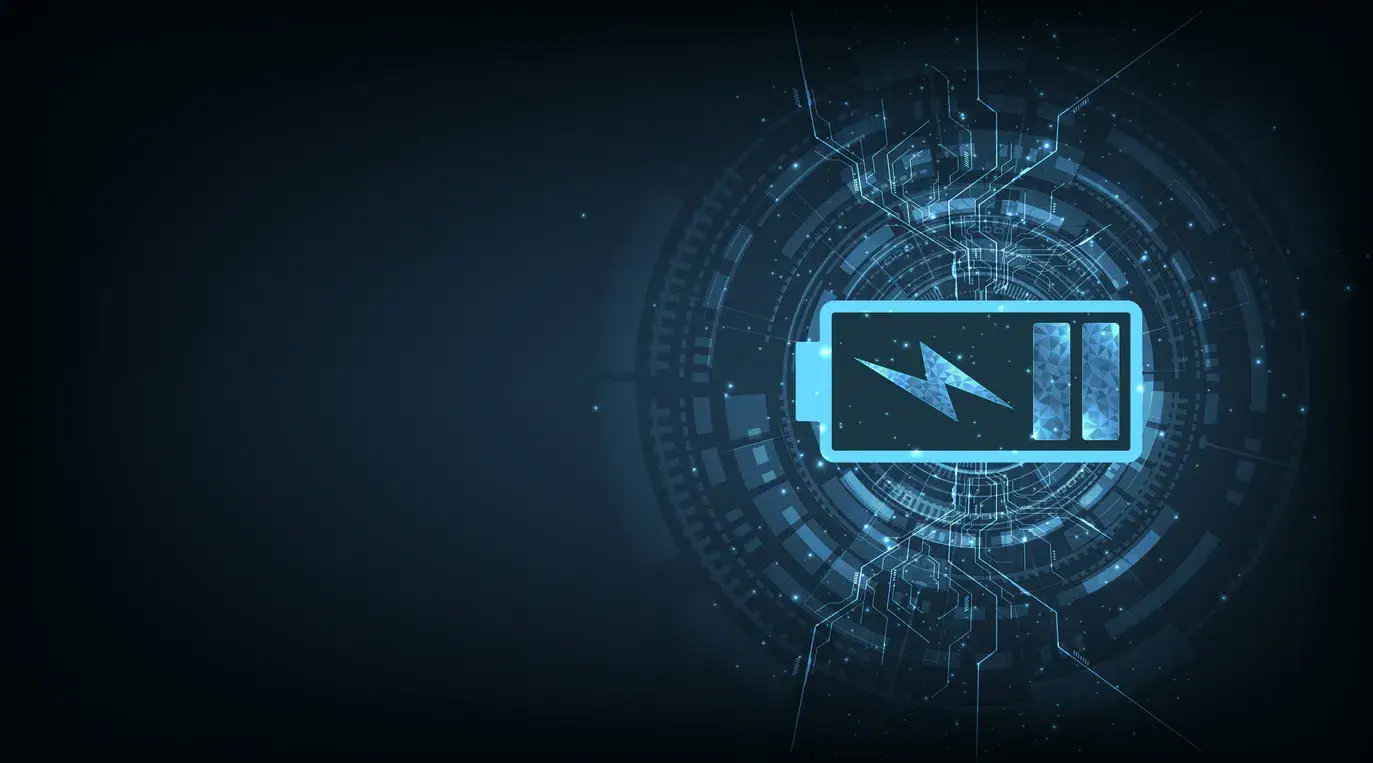-
iestinstrument
Why Lithium Battery Testing Equipment is Essential for Your Business
Lithium battery testing equipment plays a crucial role in today’s rapidly evolving energy storage landscape. As the demand for high-performance batteries continues to grow across industries, businesses are recognizing the need for precise and reliable testing methods. This equipment allows companies to evaluate the state of charge (SOC), capacity, and overall health of lithium batteries, ensuring optimal performance and safety in various applications.
The adoption of advanced lithium battery testing equipment has an impact on product quality, operational efficiency, and long-term sustainability. This article explores the importance of investing in high-precision testing tools to analyze lithium batteries. It delves into recent technological advancements, examines the cost-benefit analysis of implementing testing equipment, and discusses how these tools can help future-proof businesses in the ever-changing energy storage sector.
1. Advancements in Lithium Battery Testing Technology
Recent years have witnessed significant progress in lithium battery testing technology, revolutionizing the way batteries are evaluated and optimized. These advancements have led to improved performance, safety, and reliability of lithium-ion batteries across various applications.
1.1 High-precision measurement systems
High-precision measurement systems have become crucial in lithium battery testing. These systems enable accurate monitoring of critical parameters such as voltage, current, and temperature. Load cells, for instance, are utilized to measure the mechanical properties and performance of lithium-ion batteries. By applying controlled loads and monitoring responses like force, strain, or displacement, researchers can evaluate a battery’s structural integrity and durability under different conditions.
Moreover, high-precision current sources have become essential for obtaining high-quality electrochemical data. These sources minimize discrepancies induced by channel-to-channel variations, ensuring more accurate and reliable test results. In fact, a study demonstrated that connecting cells in series (CiS) configuration can effectively avoid measurement errors caused by stability and discrepancy of current sources among different charge/discharge equipment.
1.2 Automated testing solutions
Automation has transformed lithium battery testing, offering numerous advantages over manual processes. Automated test and assembly lines handle heavy lifting, eliminating the need for specialized rigs and reducing the risk of dropping fragile battery packs. This not only improves safety but also enhances employee well-being and job satisfaction.
Automated testing systems can conduct performance tests and calculations with superhuman accuracy, operating tirelessly around the clock. This capability allows for the optimization of battery packs and modules at the cell level, resulting in maximum capacity and minimum downtime. Consequently, manufacturers can deliver battery modules with uniform performance and consistency.
1.3 Real-time monitoring and control
Real-time monitoring has emerged as a game-changer in optimizing battery performance. By continuously tracking and analyzing data from the battery in real-time, instant insights into its health and usage patterns can be obtained. This proactive approach allows for immediate detection of anomalies or issues, enabling timely interventions to prevent potential failures or damage.
Battery Management Systems (BMS) play a crucial role in this real-time monitoring and control. By constantly monitoring key parameters such as voltage, current, and temperature, BMS ensures that the battery operates within safe limits. This real-time data allows for timely adjustments to charging and discharging processes, prolonging the battery’s lifespan.
Table: Benefits of Real-time Monitoring in Lithium Battery Testing
Benefit Description Proactive Maintenance Enables timely interventions to prevent failures Improved Decision-making Provides accurate data for informed choices Increased Efficiency Identifies optimization opportunities promptly Extended Battery Life Facilitates proactive maintenance strategies These advancements in lithium battery testing technology have significantly enhanced the quality, performance, and safety of lithium-ion batteries. As the demand for high-performance batteries continues to grow across industries, these innovative testing methods will play an increasingly vital role in shaping the future of energy storage solutions.

2. Cost-Benefit Analysis of Investing in Testing Equipment
2.1 Initial investment vs. long-term savings
Investing in lithium battery testing equipment involves an initial cost, but the long-term benefits often outweigh this expense. A comparison between lead-acid and lithium batteries illustrates this point. While the initial cost of lithium batteries may be higher ($15,000 compared to $10,000 for lead-acid), their extended lifespan (10 years vs. 5 years) and reduced replacement frequency (0.5 replacements per year vs. 2 for lead-acid) result in significant long-term savings.
The cost-effectiveness of lithium batteries is further demonstrated by their superior performance characteristics. Lithium batteries offer a higher capacity (200 Ah compared to 150 Ah for lead-acid) and a deeper depth of discharge (80% vs. 50%), allowing for more usable energy. This translates to extended operational hours and increased productivity.
2.2 Increased production efficiency
Investing in advanced lithium battery testing equipment can lead to substantial improvements in production efficiency. Automated testing systems can conduct performance tests and calculations with exceptional accuracy, operating continuously around the clock. This capability allows for the optimization of battery packs and modules at the cell level, resulting in maximum capacity and minimum downtime.
The impact on operational efficiency is significant:
- Extended operational hours: Lithium batteries enable 10 hours of operational time per day compared to 8 hours with lead-acid batteries. Over 250 workdays, this results in an additional 500 hours of operation per year.
- Increased task completion: With lithium batteries, equipment can complete an average of 15 tasks per hour, compared to 10 tasks with lead-acid batteries.
- Reduced downtime: Faster charging capabilities of lithium batteries minimize downtime. In a scenario where the hourly cost of downtime is $100, switching to lithium batteries could reduce annual downtime costs from $50,000 to $10,000, resulting in a net savings of $40,000.
2.3 Reduced warranty claims
Investing in high-quality lithium battery testing equipment can significantly reduce warranty claims. A careful assessment using advanced battery test instruments capable of examining various failure symptoms can greatly minimize warranty issues. This is particularly crucial in industries where battery reliability is paramount, such as healthcare and military applications.
The importance of thorough testing is underscored by the fact that battery management has emerged as a top 10 medical device challenge, according to healthcare professionals at the Association for the Advancement of Medical Instruments (AAMI). By implementing comprehensive testing procedures, businesses can ensure compliance with legal, industry, and manufacturer standards, thereby reducing the risk of non-compliance issues and associated costs.
In conclusion, while the initial investment in lithium battery testing equipment may be substantial, the long-term benefits in terms of increased efficiency, reduced downtime, and minimized warranty claims make it a sound business decision for companies relying on battery-powered operations.

3. Future-Proofing Your Business with Battery Testing
3.1 Adapting to evolving battery technologies
In the rapidly changing landscape of energy storage, businesses must stay ahead of technological advancements to remain competitive. The battery industry is constantly exploring new chemistries and technologies to improve performance and efficiency. For instance, sodium-ion batteries have recently been introduced into dangerous goods regulations with the creation of new UN numbers. This development highlights the need for businesses to adapt their testing equipment and procedures to accommodate emerging battery technologies.
To future-proof their operations, companies should invest in versatile testing equipment capable of handling various battery chemistries. This approach allows businesses to seamlessly transition between different battery types as the market evolves. Additionally, staying informed about ongoing research and development efforts in energy storage technologies, such as solid-state batteries, flow batteries, and hydrogen fuel cells, is crucial for anticipating future testing requirements.
3.2 Meeting future regulatory requirements
The regulatory landscape for lithium batteries is continuously evolving, and businesses must be prepared to meet new requirements. The UN Working Group on Lithium Battery Classification is actively working to identify hazards associated with lithium cells and batteries during thermal runaway and classify them accordingly. This ongoing project may lead to the addition of new UN numbers, test protocols, and considerations for state of charge (SOC) and packaging in classification.
To stay compliant, businesses should:
- Actively participate in industry discussions and webinars, such as the “Charging Ahead” webinar, to gain valuable insights into evolving regulations.
- Invest in testing equipment that can adapt to new regulatory requirements, such as those being developed by the SAE G-27 committee for safe air transport of lithium cells and batteries.
- Implement rigorous testing procedures that align with current and anticipated regulatory standards to ensure compliance and minimize potential issues.
3.3 Staying competitive in the market
To maintain a competitive edge, businesses must leverage advanced technologies and streamline their testing processes. The integration of artificial intelligence (AI) and Internet of Things (IoT) technologies into battery management systems is enhancing performance optimization, predictive maintenance, and energy efficiency. By adopting these smart battery solutions, companies can offer superior products and services to their customers.
Furthermore, the electrification of transportation presents significant growth opportunities for the battery market. To capitalize on this trend, businesses should:
- Invest in testing equipment capable of evaluating batteries for various applications, including electric vehicles, busses, and even maritime vessels.
- Develop expertise in testing batteries for decentralized energy systems, which are becoming increasingly popular due to the rise of renewable energy sources.
- Consider expanding into emerging markets in Asia, Africa, and Latin America, where rapid urbanization and increasing electrification rates are driving demand for battery solutions.
By focusing on these areas and continuously adapting their testing capabilities, businesses can position themselves at the forefront of the evolving battery industry, ensuring long-term success and competitiveness.
4. Conclusion
The adoption of advanced lithium battery testing equipment has a profound influence on the energy storage industry. This technology enables businesses to ensure product quality, boost operational efficiency, and stay ahead in a rapidly changing market. By investing in high-precision testing tools, companies can analyze battery performance, adapt to new technologies, and meet evolving regulatory requirements. This proactive approach not only enhances safety but also leads to long-term cost savings and improved competitiveness.
As the demand for high-performance batteries continues to grow, the importance of reliable testing methods cannot be overstated. The integration of automated solutions and real-time monitoring systems allows for more accurate and efficient battery evaluation, ultimately resulting in better products and increased customer satisfaction. To stay at the forefront of this evolving industry, businesses should consider investing in versatile testing equipment and staying informed about emerging trends and technologies. Learn more IEST Li-ion Battery Testing Instruments about how lithium battery testing equipment can transform your business operations and drive future success.
Subscribe Us
Contact Us
If you are interested in our products and want to know more details, please leave a message here, we will reply you as soon as we can.



